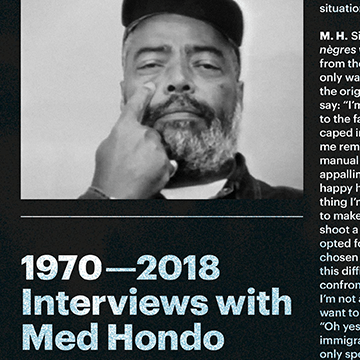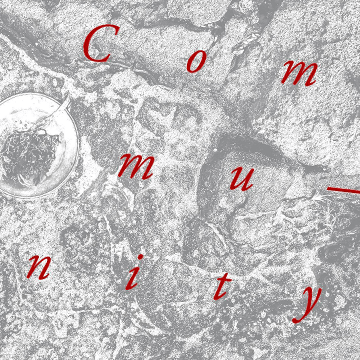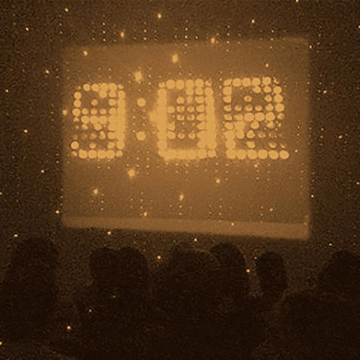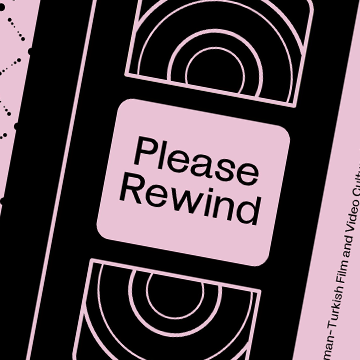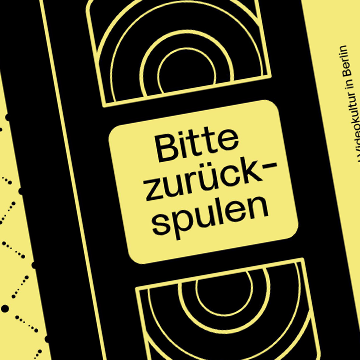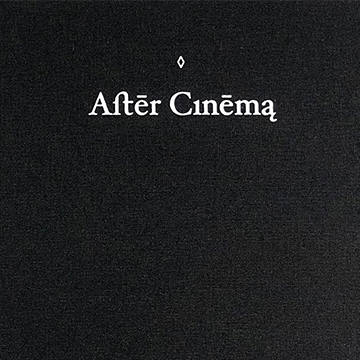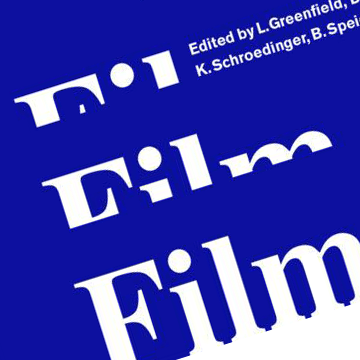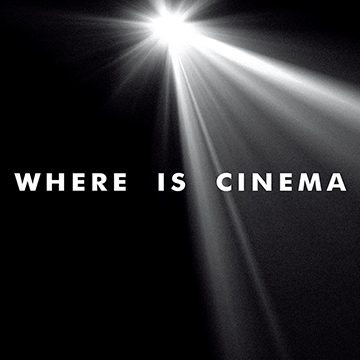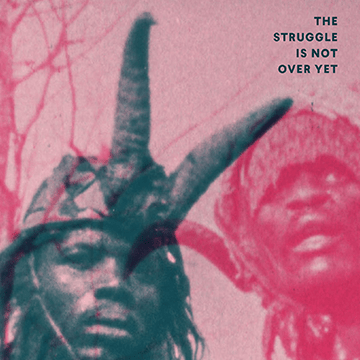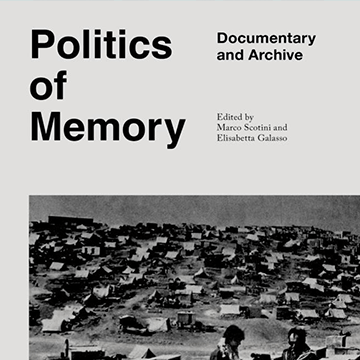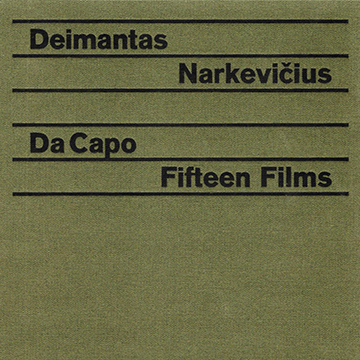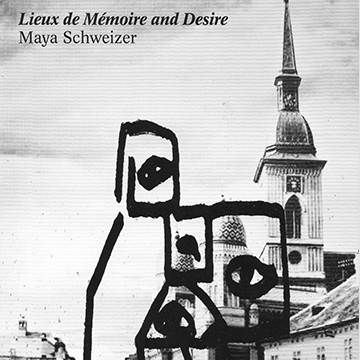Film Undone presents contributions introducing unmade and unfinished film projects, film ideas realised in non-filmic media, as well as films that remained unseen in their intended form and at their intended time.
Tag: Cinema
1970–2018 Interviews with Med Hondo
1970—2018 Interviews with Med Hondo, the first volume in a three-part publication, brings together seventeen interviews conducted with Med Hondo over a period of almost half a century, most of the interviews originally published in French were translated into English. The book originated in the long-term project Cours, cours, camarade, le vieux monde est derrière toi—Run, comrade, run, the old world is behind you—The Cinema of Med Hondo.
On the Run
A pioneer of African cinema and author of an uncompromising, strong and diverse oeuvre, we have come to know Med Hondo over the decades as one who simultaneously gazes, belligerently and attentively, sharply, passionately and ironically, deep into the past, precisely at the present, but also far into the future. On the Run. Perspectives on the Cinema of Med Hondo, second in a series of three, features contributions that pay tribute to Med Hondo’s films.
Das Kino von Med Hondo
This publication is the third of a series that aims to pay tribute to Med Hondo’s cinema and to reinvigorate interest in his films. It consists of twenty two essays and interviews in French and German, published in their original language. The book originated in the long-term project Cours, cours, camarade, le vieux monde est derrière toi—Run, comrade, run, the old world is behind you—The Cinema of Med Hondo.
Jane Jin Kaisen. Community of Parting
Community of Parting is an extension and continuation of Jane Jin Kaisen’s artistic practice. Kaisen brings past and present, the eternal and the temporal into play through layered, performative and multi-voiced, feminist works that explore topics such as memory, war, migration, and borders in a field where individual experiences and collective stories intersect. Her works negotiate and mediate the means of representation, resistance and reconciliation, thus forming alternative genealogies and sites of collective emergence.
Japanese Expanded Cinema and Intermedia
Intermedia and Expanded Cinema, both as critical approach and artistic practice, left an indelible mark in a period of Japanese art history that is broadly considered to be one of its most dynamic moments in the wake of its postwar reemergence. Rather than assuming the interpretations of the terms were the same as their counterparts abroad, we decided to commission translations of a selection of key texts that we felt were instrumental in shaping the specific discourse around these terms.
Please Rewind. German-Turkish Film and Video Culture in Berlin
Along with labor migration from Turkey, Turkish film culture has, over the years, established itself in West Berlin. Starting with screenings of Turkish films in Berlin cinemas, the video cassette conquered the market in the 1980s. Video nights became important family events; the video rental industry was booming. In addition to the import of videos from Turkey, videos which examined experiences of migration and ques- tions of identity were also produced in Germany. This publication is dedicated to the re-discovery of the German-Turkish film and video culture which continues to shape the post-migrant society to this day.
Bitte zurückspulen. Deutsch-türkische Film- und Videokultur in Berlin
Mit der Arbeitsmigration aus der Türkei etablierte sich über die Jahre auch die türkische Filmkultur in Westberlin. Angefangen mit Vorführungen türkischer Filme in Berliner Kinos, eroberte in den 1980er Jahren die Videokassette den Markt. Videoabende wurden zu wichtigen Familienevents, das Video-Verleih- geschäft boomte. Neben dem Import von Filmen aus der Türkei wurden auch in Deutschland Videos produziert, in denen Migrationserfahrungen und Identitätsfragen thematisiert wurden. Diese Publikation widmet sich der Wiederentdeckung dieser deutsch-türkischen Film- und Videokultur, welche die postmigrantische Gesellschaft bis heute prägt.
Azin Feizabadi. After Cinema
This book marks the ten-year anniversary of the project A Collective Memory by Azin Feizabadi. The project encompasses five narrative-driven films, alongside other artworks. Each film has its own urgency, approach, and point of departure. The films naturally vary in their subjects, they touch upon stories of migration, uprising, transformation, revolution, renewal, collapse, defeat, depression, and desire that connect the life of the artist with those around him.
Film in the Present Tense
This book brings together contributions from participants and guests of Film in the Present Tense – International Symposium on Current Developments in Analog Film Culture, held in Berlin. It reflects a contemporary discussion around the use, value and purpose of analogue film from a multiplicity of perspectives: artists, filmmakers, scholars, archivists, curators, technicians and manufacturers. Film in the Present Tense intends to provide a documentation of the collective momentum that characterized the symposium and it responds to the persistent desire to keep talking about analogue film.
Where is Cinema?
The book is compiled of portraits of film initiatives from around the world, interwoven with conversations with adventurers who have rebooted movie theatres or built them up from the ground, in the hope that it can be an inspiring compendium for future cinema builders, filmmakers, film curators and film lovers.
Luta ca caba inda
An archive of film and studio material in Bissau. On the verge of complete ruin, the footage testifies to the birth of Guinean cinema as part of the decolonising vision of Amílcar Cabral, the liberation leader who was assassinated in 1973. In collaboration with the Guinean filmmakers Sana na N’Hada and Flora Gomes, as well as many allies, Filipa César imagines a journey where in this fragile matter from the past operates as a visionary prism of shrapnel, with which to look through. Digitised in Berlin and screened at various locations – in what would come to resemble a transnational itinerant cinema – the archive convokes debates, storytelling and forecasts. From their screening in isolated villages in Guinea-Bissau to European capitals, the silent reels are now a place from which people might search for antidotes to a world in crisis.
The Struggle Is Not Over Yet
A conference, hosted by the International Center for the Arts José de Guimarães, borrowed its title from an unfinished film stored in an archive in Bissau. 'Luta ca caba inda' (The struggle is not over yet) was conceived as a documentary film on post-independence Guinea-Bissau, but was abandoned in the editing process in 1980. The archive testifies to a decade of collective and internationally connected cinema praxis in the country, as part of the people’s struggle for independence from Portuguese colonialism.
Politics of Memory
The anthology Politics of Memory aims to investigate the document as such, as an objective trace left by events, as material proof or the creation of reality – the strategies with which they transform a state of memory into State memory, those by means of which a historical removal is enacted, those, ultimately, in which there is an attempt to challenge permanent or temporary amnesia, opening up to the future. The artists and filmmakers contributing to this publication represent the most advanced area on an international scale of a research that inaugurates a new relationship between artistic practices and the documentary.
Da Capo. Fifteen Films
This publication constitutes the first comprehensive overview of the filmic production by the video-artist and filmmaker Deimantas Narkevičius: over 20 years of production and more than 200 exhibitions all over the world. It contains the transcription in their integral version of the film’s dialogue list, and it is completed by the comments of 16 authors on the 15 films made by Narkevičius from 1997 through to today. Each film is introduced by the artist’s personal statement.
Lieux de Mémoire and Desire
The publication presents five cinematic works of Maya Schweizer and examines how the artist approaches the relation of montage editing techniques with the concept of film and memorial and film as memorial – a relation which traces back to both the very beginnings of montage and incorporates the research of French historian Pierre Nora. Recurring moments in Schweizer’s multiform art practice revolve around the examination of subtly treated processes of memory regarding historic-political events in public space. In the places, structures and situations she investigates, historical threads intersect.

